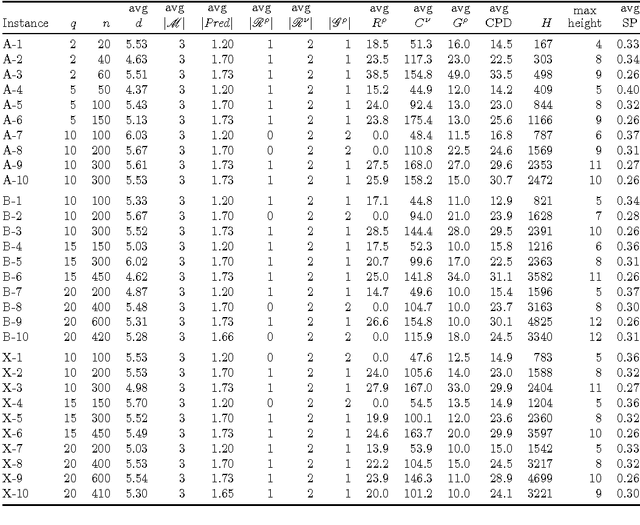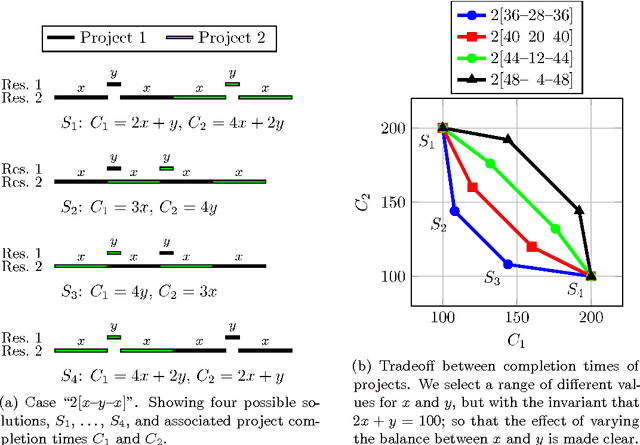Shahriar Asta
Combining Monte-Carlo and Hyper-heuristic methods for the Multi-mode Resource-constrained Multi-project Scheduling Problem
Sep 08, 2016



Abstract:Multi-mode resource and precedence-constrained project scheduling is a well-known challenging real-world optimisation problem. An important variant of the problem requires scheduling of activities for multiple projects considering availability of local and global resources while respecting a range of constraints. A critical aspect of the benchmarks addressed in this paper is that the primary objective is to minimise the sum of the project completion times, with the usual makespan minimisation as a secondary objective. We observe that this leads to an expected different overall structure of good solutions and discuss the effects this has on the algorithm design. This paper presents a carefully designed hybrid of Monte-Carlo tree search, novel neighbourhood moves, memetic algorithms, and hyper-heuristic methods. The implementation is also engineered to increase the speed with which iterations are performed, and to exploit the computing power of multicore machines. Empirical evaluation shows that the resulting information-sharing multi-component algorithm significantly outperforms other solvers on a set of "hidden" instances, i.e. instances not available at the algorithm design phase.
 Add to Chrome
Add to Chrome Add to Firefox
Add to Firefox Add to Edge
Add to Edge